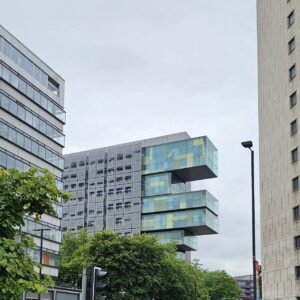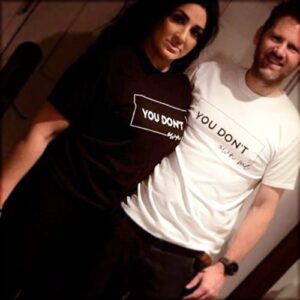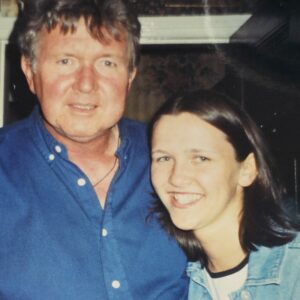
I grew up with what can only be described as eclectic taste in music.
Having a lot of siblings means you pick up on their tastes, along with your parents tastes in music. And all the while, developing your own sense of identity through the music you listen to over the course of your life.
And I went through a particularly strong phase of liking Jazz music in my late teens. I’d already grown up on Nat King Cole and Perry Como, courtesy of my Mum and Grandma. But now I was also discovering the likes of Ella Fitzgerald, Sarah Vaughan and Billie Holiday.
Strong empowering women who fought against all the odds to get to where they wanted to be.
That was it – I was hooked. Each had their own style and quality that set them apart. To me, they were formidable women.
They sang songs about love and loss, each with their own interpretation through their unique voices and styles.
Being a Domestic Abuse Consultant means you see life through a certain lens. Everything takes on specific meanings and correlations with abuse.
So when I now think of the song, “Someone to Watch Over Me” it takes on a whole different meaning.
In one verse, the lyrics are,
“I’m a little lamb who’s lost in a wood
I know I could always be good
To one who’ll watch over me.”
When I look at this from the perspective of my work, it shouts out to me the parallels with domestic abuse, in particular coercive control.
Victims and survivors who have experienced coercive control will tell you that they had to become so submissive in order to survive day to day life.
So what is Coercive Control?
Coercive control is an act or a pattern of acts of assault, threats, humiliation and intimidation or other abuse that is used to harm, punish, or frighten their victim.
And, like so many other forms of abuse, it doesn’t happen over night. The perpetrator takes their time in carving out a life where the individual experiencing coercive control becomes so dependent and reliant on the perpetrator that the rest of the world is effectively shut out.
The manipulation, isolation and fear slowly erodes the individuals sense of self.
It’s no longer about who they are. It has become about who the perpetrator wants them to be – a little lamb who’s lost in a wood.
And the only person that can save them is……you guessed it. The person who has crafted and designed a world where only they exist.
This can continue for many, many years. In fact, the longer it continues, the more “normal” it begins to feel.
“Everybody’s relationship is like this.” The narrative spun like a web by the perpetrator until the victim believes it.
And thinking for one second that there is any way out. Forget it. You have “Someone to watch over you.”
And they do. Like a hawk!
So, knowing all of the above is it really as simple as people wish to believe about leaving an abusive relationship?
When we hear people say, “why don’t you just leave?” or “why do you stay with them?”
All this does is place the blame and shame at the feet of the person who has done nothing wrong.
It’s dangerous and damaging language.
I wrote a blog entitled, We can always Do Better and as a society, that’s precisely what we need to do – better.
When we show compassion, it can encourage people to come forward and speak out. Seek the support they so richly deserve.
Giving them the chance to move forward and be free from the coercive and controlling behaviour.
Only then, can someone truly feel that there is hope.
Hope for a new chapter in life, where they can turn the page and start to move forward.
“When patterns are broken, new worlds emerge.” – Tuli Kupferberg
If the blog resonates with you and you need support, please visit my Resources Page
DIP in and out with Lucy Episodes


 Cart is empty
Cart is empty 







